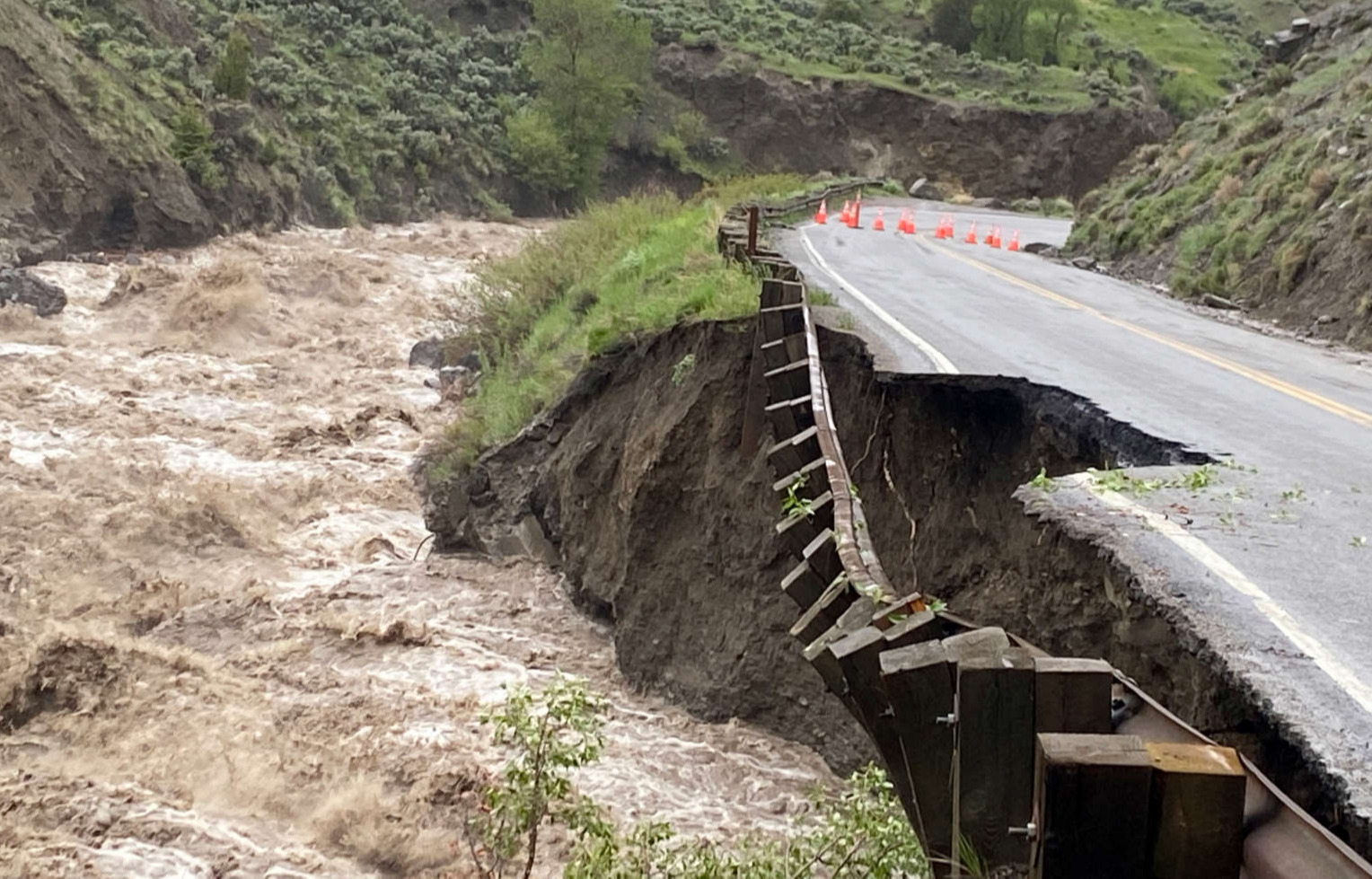
The U.S., from coast to coast, is being hit with extreme climate change, affecting weather and energy supplies.
New York, June 19 (RHC)-- The U.S., from coast to coast, is being hit with extreme climate change, affecting weather and energy supplies.
“The heat dome is centered near Nashville,” reports The Washington Post. “It has established dozens of high temperature records since it first formed late last week over Texas and the Southwest. Temperatures soared to as high as 123 degrees in Death Valley, Calif., while Phoenix hit 114 and Las Vegas 109 over the weekend.”
Meanwhile, the Post adds, many cities set high-temperature records on Monday:
Austin and San Antonio made it to 105…. Lincoln, Neb. (with a high of 103 degrees), Columbia, S.C. (103), Austin (102), St. Louis (100), Charlotte (98), Nashville (97), and Louisville and Paducah, Ky. (both 97) set June 13 records Monday. North Platte, Neb., hit 108 degrees — not just a daily record, but the highest temperature ever recorded there during the month of June.
Yellowstone National Park is closed because large parts of it are flooding and eating houses. Roads through the park have been obliterated, bridges have collapsed, with mud and rockslides battering what’s left. Park visitors have been ordered to evacuate, but there is no accounting for how many may be trapped in the back country. All entrances have been closed.
“The U.S. Geological Survey on Monday said the Yellowstone River at Corwin Springs stage increased by about 6 feet in the past 24 hours,” reports Axios, “which is above the National Weather Service’s flood stage. In fact, it rose to an unprecedented level, over 2 feet higher than its previous all-time record flood in 1918, according to the NWS.”
According to The New York Times, the weather-related battering has cashiered a significant portion of the park for the remainder of the tourist season, with no expectation of change in sight:
“Devastating rain and mudslides that tore out bridges, flooded homes and forced some 10,000 people to evacuate will keep the northern reaches of Yellowstone National Park, one of the nation’s most-visited natural wonders, cut off to tourists for the rest of the busy summer travel season. And officials warned that more rain and flooding could be on the way.”
And then there are the fires, massive ones, again, now spread over six different states. In this, the contiguous 48 do not stand alone; Alaska is currently enduring 23 significant infernos. In places like Arizona, California and New Mexico, the fires are being fueled by the aforementioned record-setting heat that has exacerbated an ongoing multistate drought of historic proportions.
The existential question of water availability is officially pressing, and no longer merely relegated to the someday-maybe corner. Towns in multiple states are running out of water, and Lake Mead in Colorado — the once-massive reservoir providing water to some 20 million people — has almost ceased to exist. In Utah, the Great Salt Lake is drying up, setting the stage for clouds of arsenic dust to blow in the wind from the dry lake bed.
Here’s how it works for much of the west: Drought leads to lower and occasionally nonexistent snowfall in the mountains. That accumulated snowfall, back when it happened, would melt as the season warmed and feed water to the various states. Now, the absence of snow leads to parched summers. When there is snow, the extreme heat causes it to melt too quickly, leading to flooding calamities like the one currently lashing Yellowstone.
“Suffice it to say,” climate reporter Dahr Jamail wrote in Truthout in July of 2019, “all of us now, if we live long enough, are likely to become climate refugees at some point … whether it be from lack of food and water, rising seas, wildfires, smoke, or extreme weather events. For many, their time as climate refugees has already begun.”

